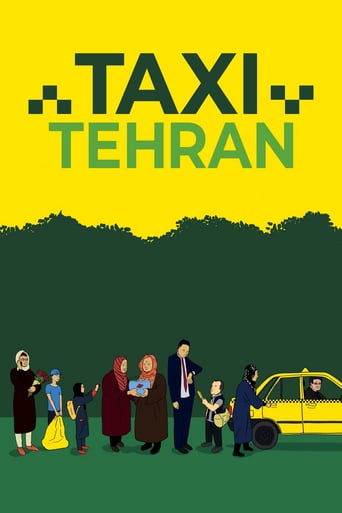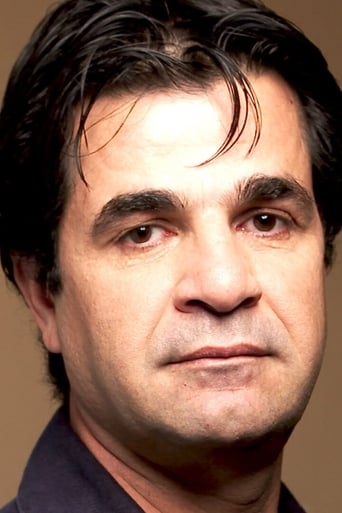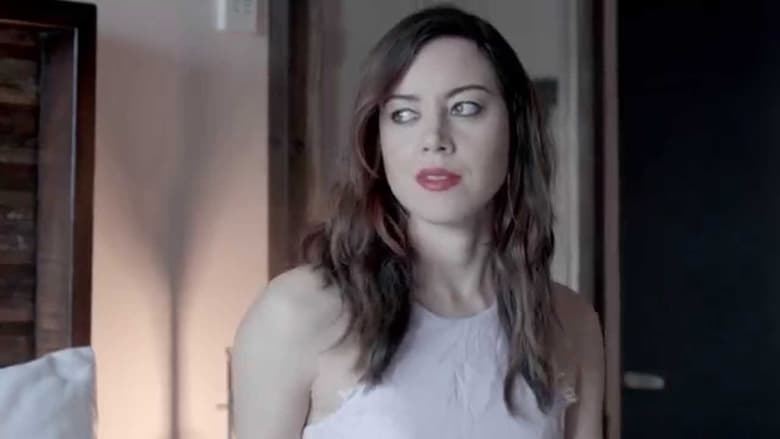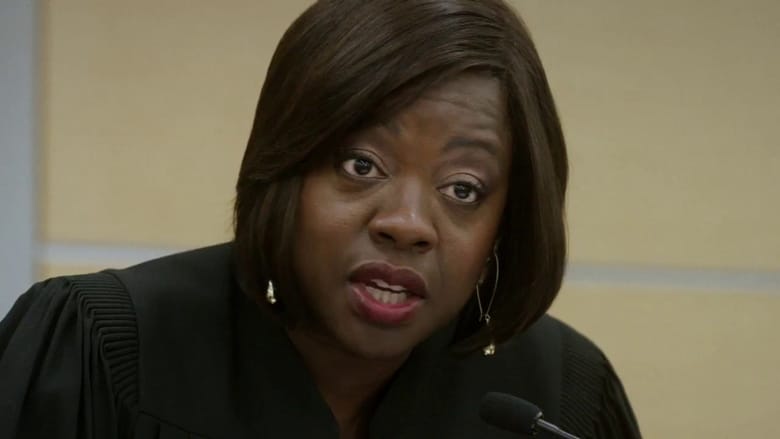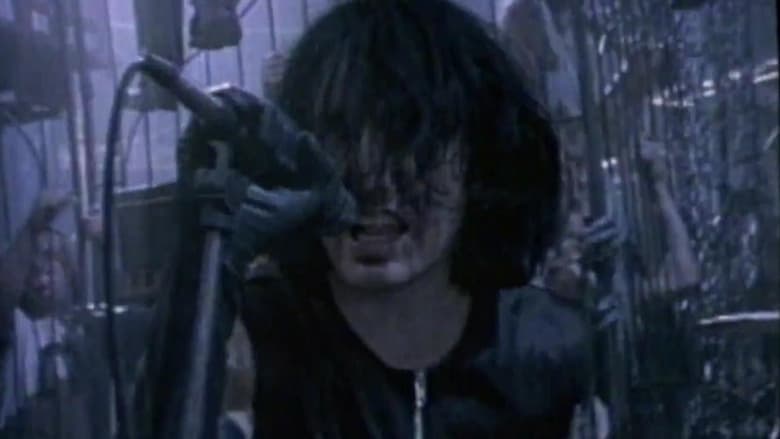A yellow cab is driving through the vibrant and colourful streets of Tehran. Very diverse passengers enter the taxi, each candidly expressing their views while being interviewed by the driver who is no one else but the director Jafar Panahi himself. His camera placed on the dashboard of his mobile film studio captures the spirit of Iranian society through this comedic and dramatic drive…


Similar titles
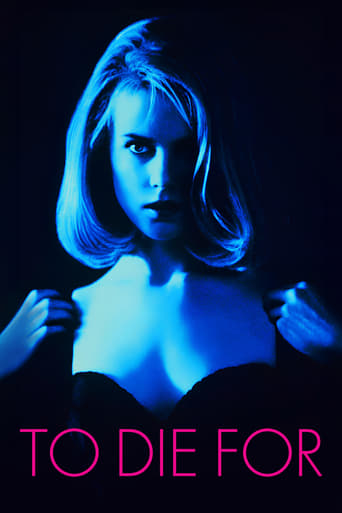
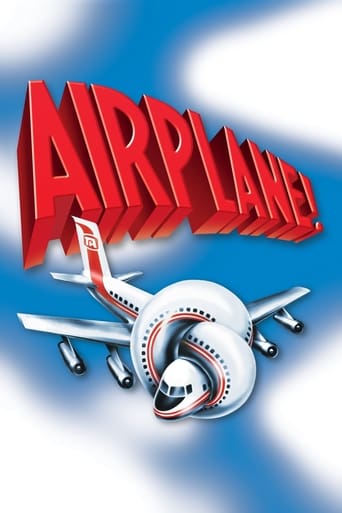
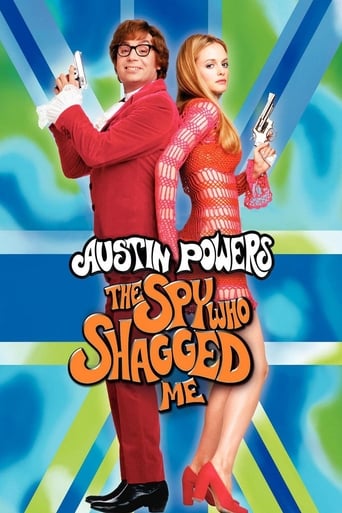
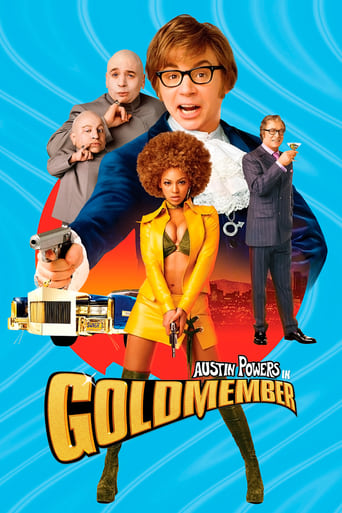
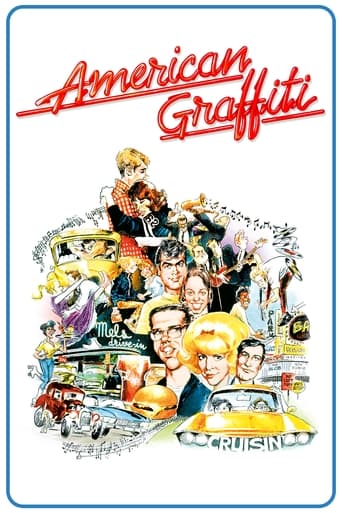

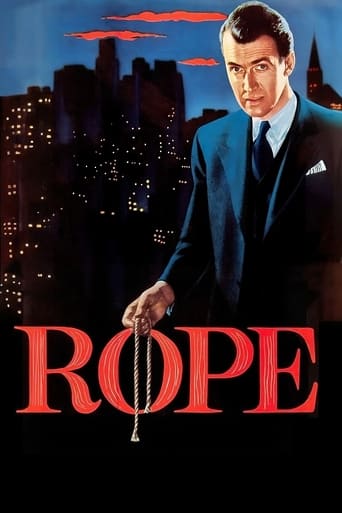

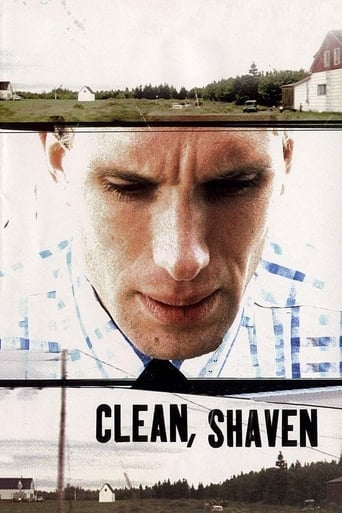
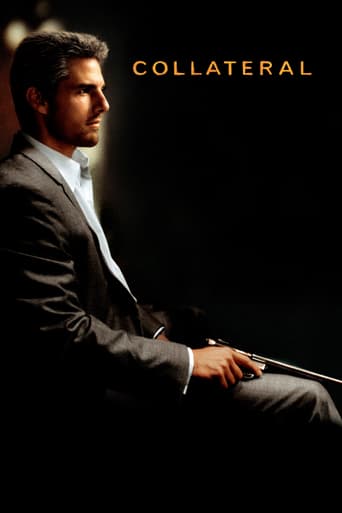
Reviews
Jafar Panahi is banned from making movies so he disguises as a taxi driver and makes one in a taxi cab. He didnot change his appearance of course but wore a hat and made a documentary-like film mostly while driving in the streets of the capital Tehran.Panahi used non professional actors to perform the scenes, so the acting was rather bad and didnot seem normal at all as Panahi intended. The dialogue was more like a speech with a lot of messages to the authorities.. It was not like anything written for a movie not even if it is considered a documentary. Panahi only gathered what Iran is criticized for and just made the non professional actors state them bluntly.Yes I am familiar with the situation he is in and saying it objectively: if you want to do something whether you are right or wrong do it properly. After all he was the Kiarostami's assistant (the director of close-up, one of the best movies I have ever seen).All in all the execution was weak with no creativity in it.. He failed to connect with the social and cultural realities of Iran and really failed to connect on the emotional level through the stories he made with the audience. I expected much more.
Very interesting and intriguing. Let me explain why so.The difficult Kafkaesque conditions in Iran are very real. I have visited Iran and therefore I have seen it all firsthand. Everything in the movie is real. My heart goes out to the people of Iran where the best works of Iranian cinema are banned. My favourite Iranian film "Bitter Dreams," a debut film by Mohsen Amiryoussefi, was banned within months of it being shown in the Cannes film festival and most cineastes are not even aware of its existence.Panahi is different. He makes good films. He claims he is hounded by the authorities but yet makes films, one after the other, openly in the streets of Teheran. It cannot be that he has done it without people noticing his filming.Now "Taxi" is a laudable work--including the discussion of males wearing ties in public (I have not spotted a single Iranian male wearing a necktie in Teheran, but two people in "Taxi' wear ties, Panahi's friend and the bridegroom), a top human rights lawyer Nasrin Satoudeh (the flower woman) talking of prisons as "Paradise" after she herself endured time in the notorious Evin prison, mention of public hangings for petty offences by financially stressed folks, pirated film CDs sold in the streets, mention of Panahi being interrogated in prison blindfolded and his search for that man by trying to identify him by his voice--all laudable, realistic cinema.Or is it? Panahi is afraid two women with a fishbowl will wet his backseat. When the fishbowl breaks, he is not concerned about the water or the broken glass. The camera angles of the sequence with him helping the ladies save the fish could not have been taken from the dashboard camera. Evidently there were more cameras used than we are expected to believe.I have actually shook hands with the director in my city when he was chairing a film jury. He appeared sullen and unfriendly. In the movie "Taxi" you see a charming, smiling and friendly Panahi. Which is the real Panahi? In my view, the film deserved the Best Actor award at Berlin rather than Best Film.As in Panahi's "The circle", the subject of his cinema is totally laudable in "Taxi." Is there an implicit collusion between Panahi and the Iranian authorities? How much of "Taxi" is spontaneous? Probably very little.
"Taxi" or "Teheran Taxi" is an 80-minute movie from Iran this year. Anybody who has a bit of interest into cinema from that country/region, will definitely have heard about Jafar Panahi, an Iranian filmmaker who received honors all over the world, but was put into prison and under arrest in his home country. The only other work I have seen from him is "Offside", a movie about a couple young woman who want to watch a football game in the stadium, which is, of course, not allowed for women in Iran.Panahi is also prohibited from making movies, but as you see from this one here, that won't stop him. Basically, the whole thing is scripted, even if Panahi plays himself here and poses as a taxi driver because he is not allowed to make movies. Several of his friends appear in this movie. We see a motorbike crash, a couple old women transporting goldfish, Panahi's niece, a friend of him who got mugged etc. Sometimes the fine line between reality and fiction vanishes, but that's not a problem at all if you cannot be 100% sure what is going on. Funny also how the guy who sells "Walking Dead", "Big Bang Theory" etc. accuses Panahi of making a movie in his car and that the other passengers were paid actors with him being an actor himself in fact.I must say there were no real edge-of-seat moments in this one, but it was a decent watch from start to finish. The closest to greatness was possibly the scene with the girl trying to convince the boy to give back the money. It shows us that justice is not lost in the country, but it takes a lot to overcome your demons. I also liked the ending, not only because of the reference to the start, but also because it's actually a pair of criminals who keep this film from running any longer. The irony with the Iranian governments strict policy on Panahi and his works is obvious. And of course, Panahi and his niece get punished the very moment they try to do something good, i.e. bring back the purse to the old ladies. As a whole, I recommend this movie. There is no real greatness in here in terms of the plot, but the background story and filming conditions are the real heart and soul of the movie and also the reason why this one won quite a few awards, especially here in Berlin. Finally, it was nice to see Panahi healthy and in fairly good shape and spirit, after all he had to go through. Recommended.
Imagine, if you will, a world in which you may walk freely on the streets, but are hardly free at all. That's the world in which Iranian director Jafar Panahi lives, breathes and tries to work - one we're introduced to in gentle, tartly comic fashion in his latest film. Taxi, which won the Golden Bear at the 2015 Berlin International Film Festival, gives viewers a seductive, sobering glimpse into modern- day Iran, a country where criminals are executed for petty theft and women jailed for trying to attend a men's volleyball match.The premise of Taxi is simple - Panahi himself, with cameras cleverly affixed throughout his vehicle, drives a taxi through the teeming streets of Iran. Throughout the day, Panahi the cabbie picks up strangers, friends and relatives, played by themselves or non- professional actors. Along the way, he makes idle conversation with them, or they chat amongst themselves - ordinary chatter that carries quite extraordinary import.It's fascinating, thought-provoking stuff, delving deeply into ideas and questions about Iran and its politics while firmly couched in the language of the everyday. Two passengers launch into an impassioned discussion on the merits (or lack thereof) of capital punishment and syariah law. The broken body of a man is bundled into the backseat and, with what he thinks is his dying breath, he tries to circumvent laws that will prevent his sobbing wife from inheriting their home. Art and ideas are sold on the streets, the stuff of covert piracy, as the precocious Hana Saeidi, Panahi's young niece, relates to him the lessons she has learnt on how exactly to make films that will be 'screenable' in Iran.To be honest, the final film is an amiable if somewhat rickety affair. Parts of it work better as metaphors, faltering somewhat in the execution. For instance, Hana is, literally and metaphorically, the future - both of Iran and, with her own little hand-held camera, filmmaking. But the moment when she tries to exert control over a scene she's shooting from the window of the taxi, haranguing a little boy to behave differently so that her footage will pass muster in school, feels a little too on-the-nose. In a couple of instances, it's easy to identify the issues Panahi wants to raise: in a bowl of fish or an iPad video, he finds insights about the power of superstition and the tragedy of poverty. But the scenes themselves don't always work as well, ambling when they should sprint.Nevertheless, it's impossible to remain unmoved by the quiet power and heartbreaking passion of Taxi. This is a gem of a film: subtle, leisurely and surprisingly funny; thoughtful and deep but rarely overbearingly so. It's all the more impressive, of course, as a testament to Panahi's ongoing refusal to bend and break beneath the 20-year filmmaking ban that was slapped on him in December 2010. Since then, he's smuggled a film out of Iran on a flash drive baked into a cake, and assembled Taxi out of cam footage shot in broad daylight in Tehran. That's why, in ways both big and small, Taxi serves as a bold reminder of the bravery and strength of the human spirit.
